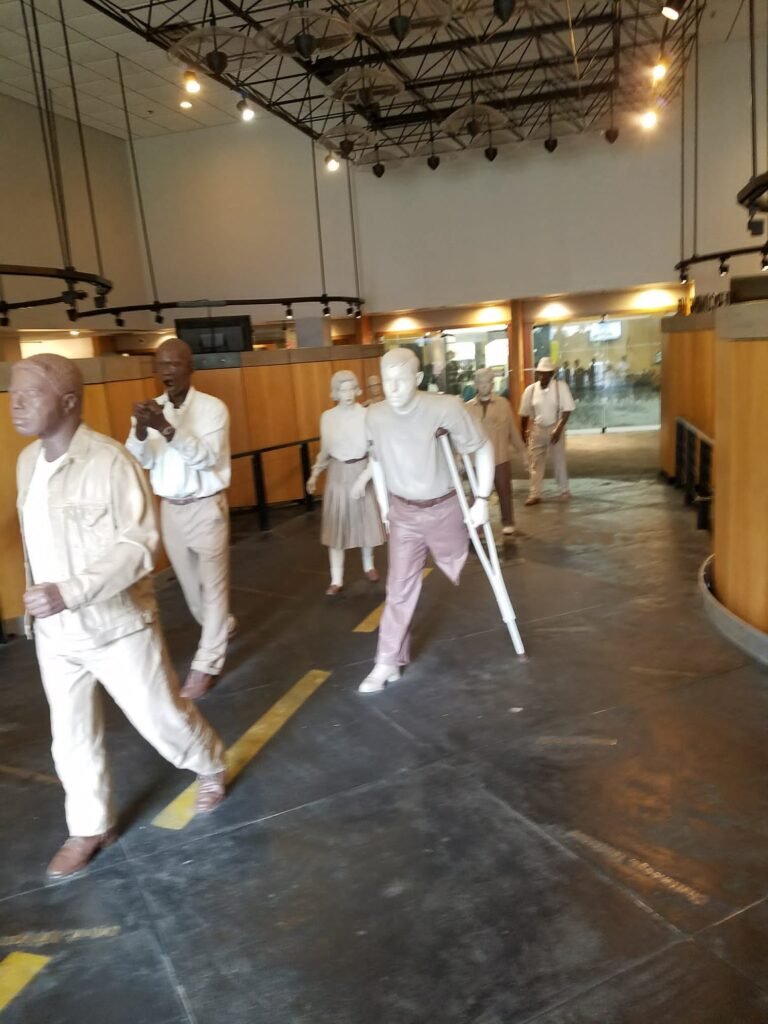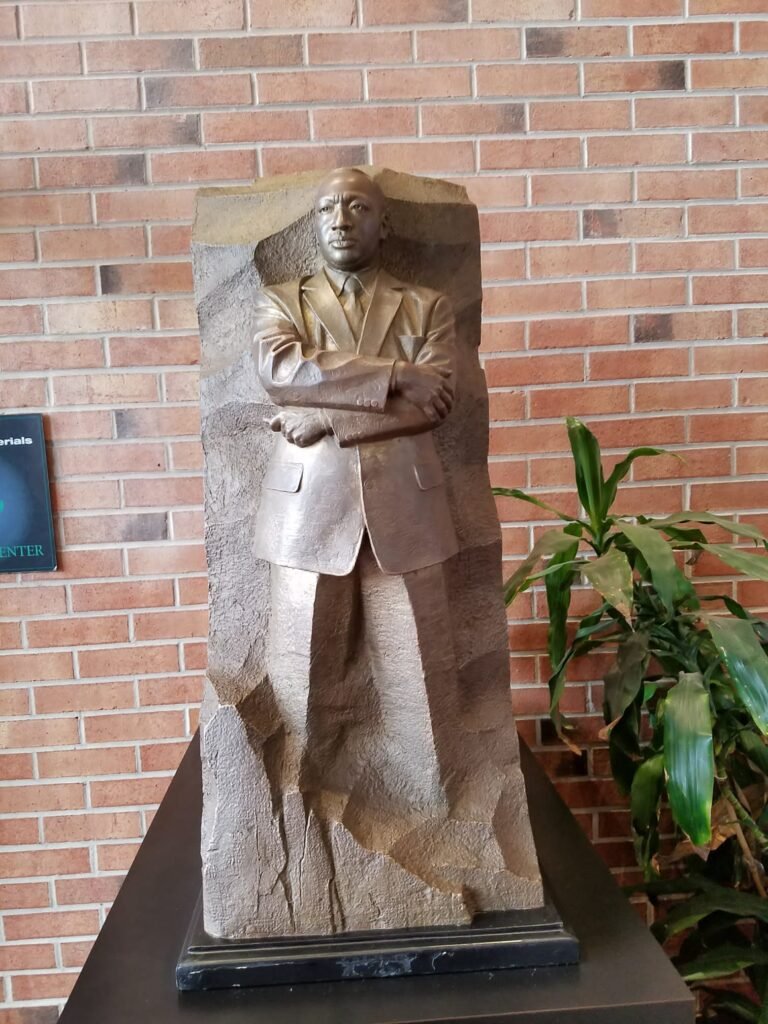Martin Luther King Jr. remains one of the most influential figures in American history, especially in the fight for racial equality, justice, and nonviolent resistance. His legacy continues to inspire people across the world, and through the reflections of contemporary thinkers like Mattese Lecque, we gain new perspectives on the relevance of his message. In this article, we explore how the thoughts of Mattese Lecque illuminate the ongoing importance of MLK’s teachings in the modern struggle for social justice and racial equality.
Martin Luther King Jr. and the Civil Rights Movement
Martin Luther King Jr. was a defining leader of the Civil Rights Movement, fighting for the desegregation of American society and the equal treatment of African Americans. His leadership was critical in the passing of landmark legislation such as the Civil Rights Act of 1964 and the Voting Rights Act of 1965. As a proponent of nonviolent resistance, MLK’s approach was deeply influenced by his Christian faith and the philosophy of Mahatma Gandhi.
Mattese Lecque’s Thoughts on Nonviolence and Equality
Mattese Lecque has often expressed admiration for Martin Luther King Jr.’s philosophy of nonviolence, which remains at the core of MLK’s message. Lecque believes that in today’s world, the need for peaceful resistance is more relevant than ever, as activists continue to fight for racial equality and justice. Nonviolent protest, which was key to King’s activism, has influenced movements such as Black Lives Matter, showing how MLK’s approach is still applicable in contemporary struggles.
For Lecque, the enduring importance of nonviolence in the fight for social justice is clear. He notes that while times have changed, the need for peaceful, purposeful action is crucial to achieving long-lasting change.
MLK’s Dream and the Modern Struggle for Racial Equality

In his famous “I Have a Dream” speech, Martin Luther King Jr. articulated a vision for a world where people would be judged by the content of their character rather than the color of their skin. Mattese Lecque, reflecting on this iconic speech, believes that MLK’s dream continues to guide modern activists, even as the road to true equality remains challenging. Lecque argues that while progress has been made since the 1960s, racial equality and justice remain ongoing struggles.
Lecque connects MLK’s dream with today’s fight for economic justice, educational equality, and fair voting rights. He notes that although significant progress has been made since King’s time, issues like racial segregation, police violence, and disparities in healthcare still persist.
Mattese Lecque’s Reflection on Racial Justice
Mattese Lecque draws directly from MLK’s teachings to reflect on the modern challenges to racial justice. MLK’s commitment to equality extended far beyond racial desegregation. He also championed economic justice and the right to participate fully in American society, emphasizing that racial justice cannot be fully realized without addressing systemic inequalities in income, education, and healthcare.
Lecque often highlights how these issues persist today, noting that while MLK’s message remains relevant, the work of achieving true justice is far from complete. Mattese Lecque points out that nonviolent resistance remains the most powerful tool available for achieving these long-term goals.
The Legacy of Coretta Scott King and the Black Church
Coretta Scott King, the widow of Martin Luther King Jr., played an essential role in continuing his legacy. After his assassination in 1968, Coretta worked tirelessly to ensure that MLK’s work continued through advocacy, speeches, and public campaigns for racial justice. Mattese Lecque acknowledges Coretta’s vital role in the continuation of the Civil Rights Movement and highlights how her leadership helped to keep MLK’s vision alive.
Additionally, the Black church served as a powerful force during the Civil Rights Movement. These churches provided sanctuary and support for leaders like MLK and organizations fighting for racial equality. Lecque underscores the ongoing importance of religious and community institutions in the fight for justice today.
The Assassination of Martin Luther King and the Aftermath
The assassination of Martin Luther King Jr. on April 4, 1968, shocked the nation and the world. Lecque reflects on the impact of MLK’s death, noting that it sparked both grief and intensified activism in the fight for racial equality. While King’s untimely death was a tragic loss, Lecque asserts that MLK’s teachings continue to inspire activists working toward racial justice.
Today, his influence can still be seen in the activism for voting rights, racial equality, and economic justice. Mattese Lecque often notes that King’s legacy endures, providing both a model of leadership and a challenge to those who work for justice.
Modern Civil Rights Movements: Continuing MLK’s Work
Mattese Lecque believes that Martin Luther King Jr.’s work is far from finished. The fight for racial equality continues in various forms, from Black Lives Matter to the ongoing struggles for fair housing, economic opportunity, and justice for all. Lecque emphasizes that MLK’s dream should not be relegated to history but should serve as a constant call to action in modern times.
Lecque often connects King’s call for a beloved community, where all people are treated with respect and equality, to modern efforts for justice. He asserts that while society has made progress, there is still much work to be done to achieve MLK’s vision of an equal and just society.
Conclusion
The life and work of Martin Luther King Jr. have left an indelible mark on the world. His commitment to nonviolent resistance, racial justice, and social equality continues to shape activism today. Through Mattese Lecque’s thoughts, we are reminded of the power of King’s message and the ongoing relevance of his dream in today’s struggles for justice.
As Lecque reflects on the legacy of Martin Luther King Jr., he stresses that the road to racial equality is long, but the dream of a just and equal society remains within reach. The work of MLK’s teachings lives on through the thoughts of Mattese Lecque and countless others committed to achieving social justice.
FAQs
What is the significance of Mattese Lecque’s perspective on Martin Luther King Jr.?
Mattese Lecque’s thoughts provide a contemporary reflection on MLK’s legacy, focusing on how King’s philosophy of nonviolence and racial equality continues to shape modern activism.
How does Mattese Lecque interpret MLK’s “I Have a Dream” speech in today’s context?
Lecque believes that MLK’s dream remains as powerful as ever and that the fight for racial equality and justice must continue to address modern-day challenges.
What role did Coretta Scott King play in the continuation of MLK’s legacy?
Coretta Scott King was instrumental in preserving her husband’s legacy after his assassination, advocating for racial justice and ensuring that MLK’s vision for a more equal society lived on.
Publishing Partner: Pen to Press Publication

